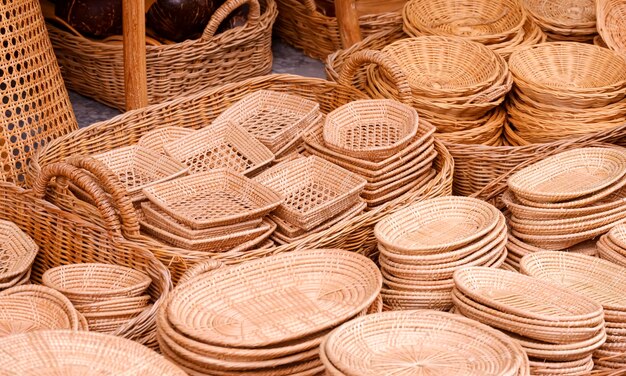Artisanal crafts have long been a cornerstone of Botswana’s cultural identity, showcasing the country’s rich heritage and creative talent. Beyond their cultural significance, these crafts are emerging as a key player in Botswana’s export market, offering unique opportunities for economic growth and global recognition. Entrepreneurs and artisans in Botswana can leverage this growing demand to create sustainable businesses while preserving traditional craftsmanship.
The Importance of Artisanal Crafts in Botswana
Artisanal crafts in Botswana, such as basket weaving, pottery, jewelry making, and leatherwork, are deeply rooted in local traditions. They are crafted using natural materials like grass, clay, and beads, reflecting the country’s connection to its environment. These crafts serve as a medium for storytelling, capturing Botswana’s cultural essence and history.
Global Demand for Authentic Handcrafted Goods
The global market for artisanal products is thriving as consumers increasingly seek authentic, handmade goods over mass-produced items. Botswana’s crafts, known for their high quality and unique designs, align perfectly with this demand. International markets, particularly in Europe and North America, value Botswana’s crafts for their authenticity and sustainability.
Key Export Products
- Basketry: Botswana’s handwoven baskets, particularly from the Okavango Delta region, are celebrated for their intricate designs and durability.
- Jewelry: Locally made jewelry, often incorporating beads and precious metals, appeals to global markets looking for culturally inspired accessories.
- Leather Goods: Products like handbags and shoes made from locally sourced leather offer durability and style.
- Woodwork and Pottery: Handcrafted utensils, bowls, and decorative items made from natural wood and clay are popular exports.
Challenges Facing Botswana’s Artisanal Export Market
While there is significant potential, the sector faces challenges that need addressing:
- Market Access: Many artisans lack the resources or knowledge to access international markets.
- Scaling Production: Maintaining quality while increasing production to meet global demand is a key challenge.
- Counterfeiting: Protecting intellectual property and ensuring products are authentically “Made in Botswana” is critical.
- Logistics: Efficient shipping and handling are vital for reaching global customers.
Strategies to Enhance Botswana’s Artisanal Exports
1. Capacity Building and Training
Providing artisans with training in modern techniques, business management, and market trends can enhance product quality and marketability.
2. Leveraging Technology
Using e-commerce platforms to showcase and sell products can connect artisans with international buyers. Websites like Etsy, Amazon Handmade, and African-centric platforms are ideal for reaching global audiences.
3. Government Support and Policy
Policies that encourage artisanal craft production and export, such as tax incentives and grants, can stimulate growth. Additionally, initiatives like “Pride of Botswana” campaigns can increase the visibility of local crafts.
4. Collaboration with Tourism
Botswana’s thriving tourism industry can serve as a platform to market artisanal crafts. Tourists often seek authentic souvenirs, and showcasing crafts in hotels, airports, and tourist hubs can boost sales.
5. Participation in Trade Shows
Attending international trade fairs and exhibitions provides a platform to display Botswana’s crafts to global buyers, opening doors to new markets.
Case Study: Success Stories in Botswana’s Artisanal Export Market
- Okavango Basket Weavers: These artisans have successfully exported their baskets to high-end markets, including galleries and luxury stores abroad.
- Leather Creations by Local Entrepreneurs: Entrepreneurs in Botswana have tapped into the global leather goods market, creating a niche for high-quality handcrafted bags and accessories.
Benefits of Artisanal Crafts for Botswana’s Economy
- Job Creation: The artisanal sector employs a significant portion of Botswana’s rural population, providing income and economic stability.
- Preservation of Culture: Encouraging artisanal crafts helps preserve Botswana’s cultural heritage for future generations.
- Foreign Exchange Earnings: Exporting crafts contributes to the country’s foreign exchange reserves, boosting the economy.
The Path Forward
To fully capitalize on the potential of artisanal crafts, Botswana must:
- Establish artisan cooperatives to streamline production and marketing efforts.
- Partner with international organizations to promote Botswana’s crafts.
- Invest in infrastructure to support efficient production and export processes.
Artisanal crafts in Botswana are more than just cultural artifacts; they are a powerful economic asset with the potential to elevate the country’s presence on the global stage. By addressing challenges and adopting innovative strategies, Botswana can transform its artisanal crafts into a thriving export industry, benefiting both artisans and the broader economy. For entrepreneurs, the artisanal craft sector offers a unique opportunity to create meaningful businesses while promoting Botswana’s rich heritage to the world.












